Massa de Pimentão: Portuguese Fermented Seasoning
Dec 09,2021
Massa de Pimentão: Portuguese Fermented Seasoning
Dec 09,2021
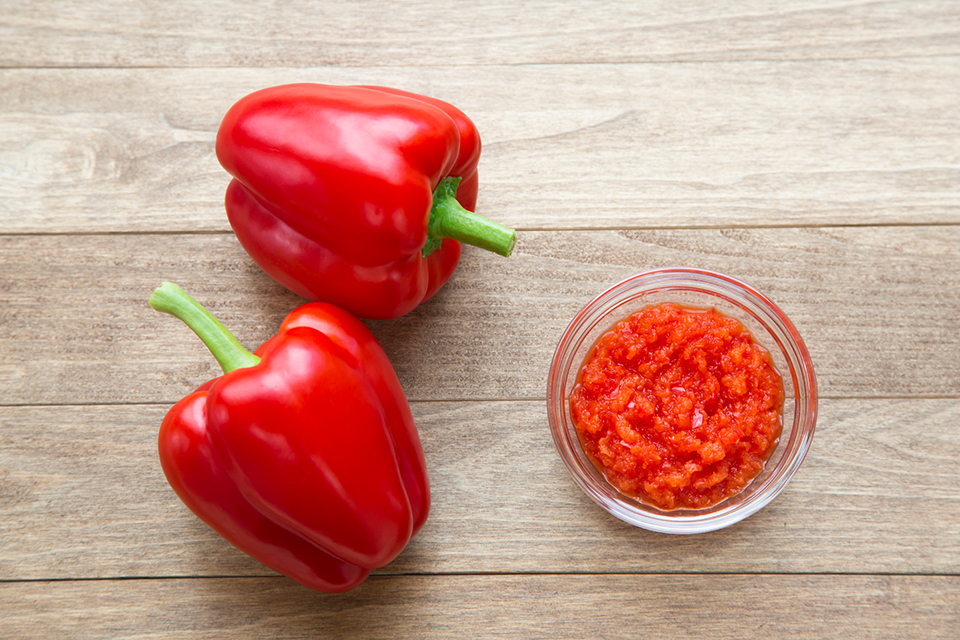

Culinary expert Kuriyama Mayumi has devoted her life to studying Portuguese cuisine ever since she became enamored of it on a chance encounter with it during her travels. She has spent many years sharing the delights of Portuguese food in Japan while running the cooking school Amigos Deliciosos, which focuses on Portuguese cuisine.
We asked Mayumi about the defining features of Portuguese cuisine and the all-purpose fermented seasoning massa de pimentão indispensable to it.
Mayumi embarked on a culinary career after leaving her office job. She worked as assistant to one of Japan’s leading culinary experts, Edamoto Nahomi, before turning freelance. She is now a familiar face in the media through her books and magazine features.
Mayumi’s forte is simple, healthy cuisine showcasing seasonal ingredients. She’s a “home cooking person,” to quote her own words. She has created many a down-to-earth, heartwarming recipe.
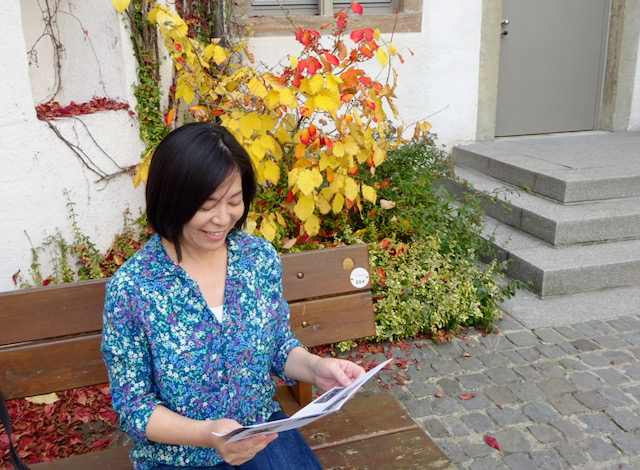
Culinary expert Kuriyama Mayumi
The one thing Mayumi enjoys as much as working in the kitchen is traveling. She discovered Portugal for herself in 1998, due to an unforeseen change in plans on a trip to Turkey with a friend. She set off to explore Turkey but found she still had time to spare, so she decided to visit one more country. And that’s how she ended up in Portugal, which was not in her original itinerary. There, beautiful, exotic townscapes unfolded before her eyes. The place had a simple, humble air reminiscent of Japan in the good old days.
“I fell madly in love with Portugal. It was somehow nostalgic. I felt strangely at home there. For me, traveling is mainly about food, so I immediately tried Portuguese cuisine.”
Many of the ingredients found in Portugal, like rice and seafood, will be familiar to Japanese readers. The cooking methods used — roasting, simmering, deep-frying — are also similar. Though the concept of preparing dashi stock so important to Japanese cuisine doesn’t exist, the juices produced when boiling or simmering seafood or meat are all put to good use. None goes to waste. Portuguese cuisine is like Japanese cuisine in that no effort is spared during the preparation process.
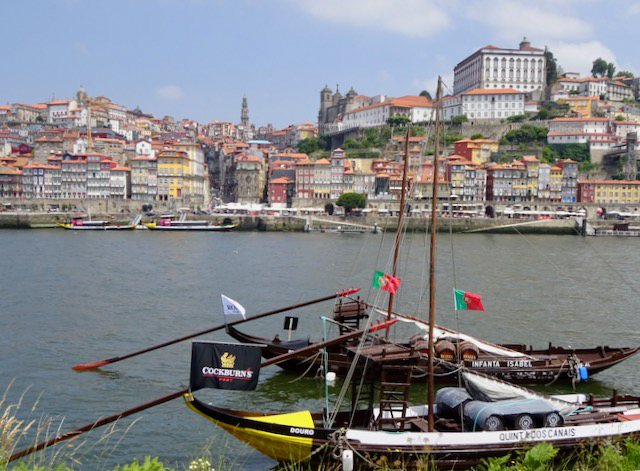
A scenic Portuguese townscape
“Rice cooked with savory ingredients and risotto, which the locals love with a passion, are deeply infused with flavor. You can really taste the seafood stock. Another thing I found great about Portuguese food was that it was simple to make. There’s little difference between restaurant food and home cooking.”
Having tried Portuguese food for the first time, Mayumi became curious about the seasoning used in the Portuguese staple Alentejo-style pork and clams.
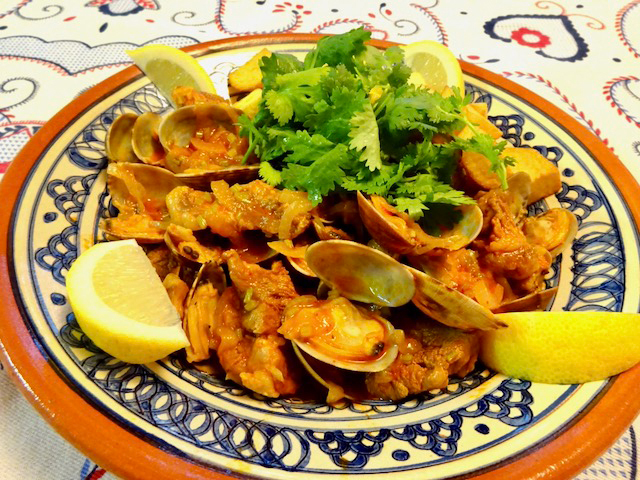
The Portuguese staple Alentejo-style pork and clams
“It was so delicious that I had it twice during my five-day stay. But I had no idea what the seasoning was that gave it its distinctive flavor. Since it was red, I figured it must be made with tomatoes, so on getting home to Japan, I tried to recreate it using canned tomatoes. But it tasted nothing like the real thing.”
On her second visit to Portugal, Mayumi came across a traditional fermented seasoning called massa de pimentão (or massa for short) at a greengrocer in the market. Produced by fermenting bell peppers, massa is indispensable to Portuguese cuisine. In Portugal, it’s not only sold in stores; it’s also commonly made in the home.
“When I was told that it was used in pork and clams, I realized that this was the seasoning I’d been looking for. I asked the greengrocer how it was made, and they patiently explained how to make it, even though they sold it.”
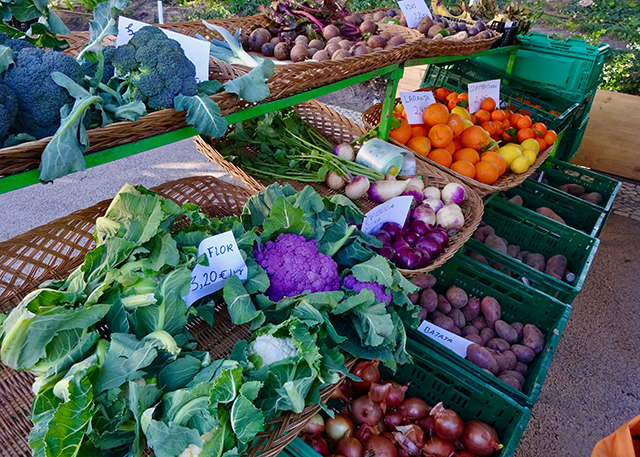
Mayumi has perfected a recipe for an easy-to-make variation on massa designed to bring it to more Japanese dining tables. The only ingredients are bell peppers and salt, plus a little olive oil as a preservative.
Massa is an all-purpose seasoning that goes equally well with Japanese, Western, or Chinese food. Thanks to the way the fermentation process enriches the umami of the bell pepper, it’s all you need to add depth to the flavor of any dish. Here, Mayumi shares her own special massa recipe designed to be made with Japanese salt.
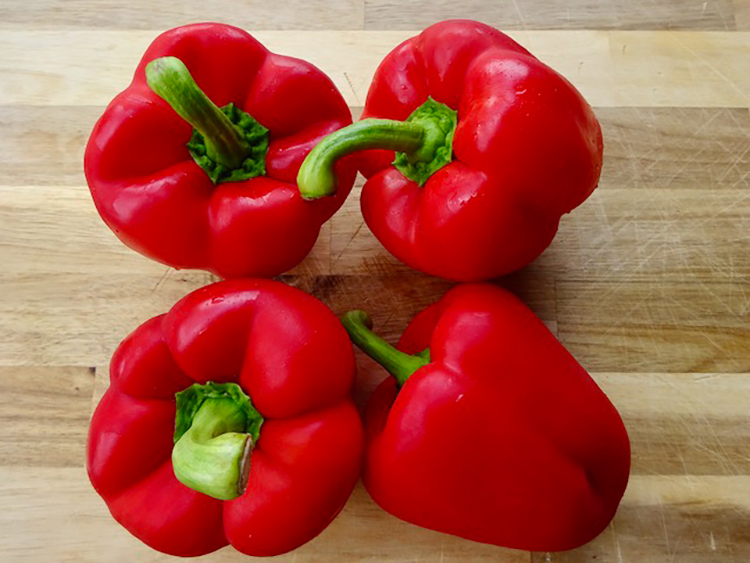
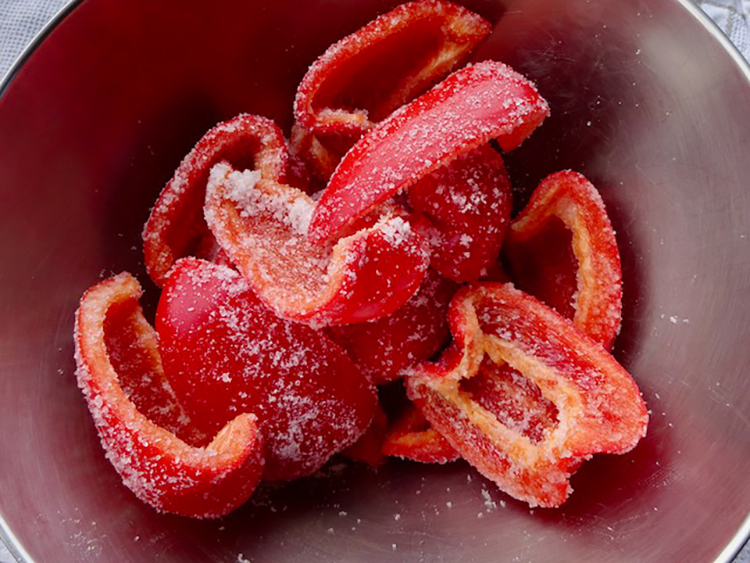
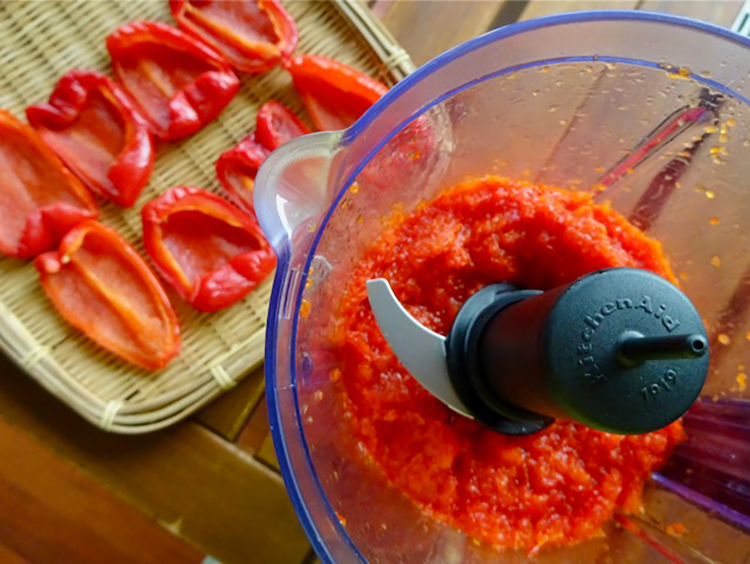
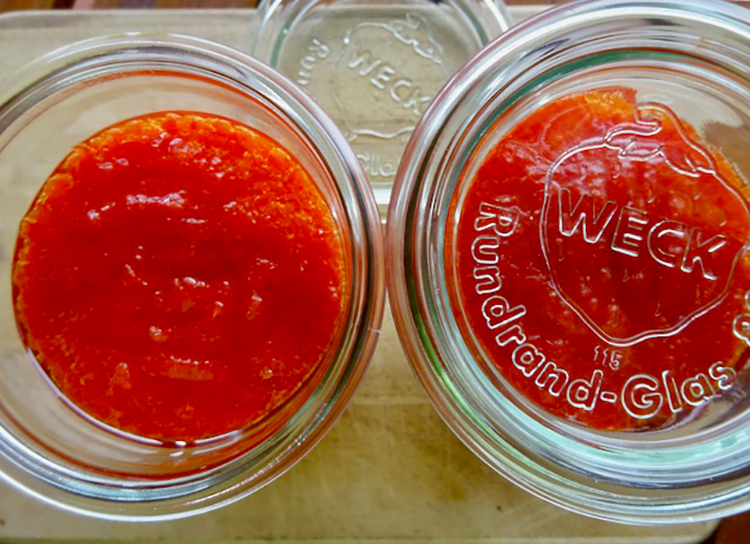
“To put it in terms of Japanese food, use this massa as you would salt, soy sauce, or miso. Place a little on chilled tofu in place of soy sauce, or combine with Japanese black vinegar as a dipping sauce for gyoza. It adds a lot of depth to the flavor when simply put on top or mixed into food.”
Mayumi particularly recommends her no-fuss pasta, made by mixing massa and olive oil into boiled pasta, and her ginger pork, made by sautéing pork with massa and ginger. A single spoonful of massa is all you need to bring together the flavor. What’s more, bell peppers are packed with vitamins A and C, and neither breaks down easily when heated. That’s great for your looks and your health when you’re on the run every day.”
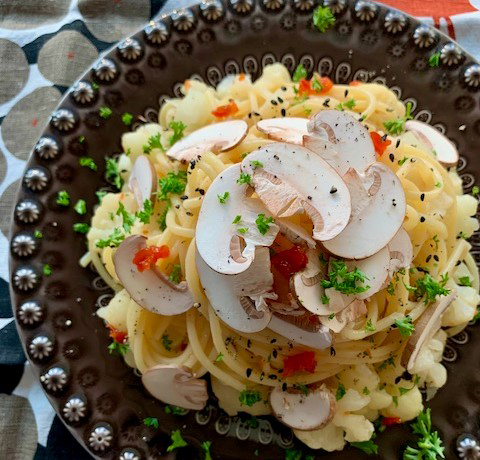
Captivated by the wonderful magic of Portugal and its food, Mayumi decided to dedicate her life to studying the country’s culinary culture and spreading awareness of it in Japan. Alongside her existing work, she launched her own cooking school focused on Portuguese cuisine.
This started out modestly enough. But then in 2016, she signed an agency agreement with a cooking school operator, and she was suddenly deluged with applications to attend her classes. For the next few years, her life was a whirlwind.
“I’d worked mainly on food shoots and events until then, while conducting cooking classes on the side. But before I knew it, the tables were reversed. When I had several classes a week, I had to spend the rest of the week purchasing ingredients and preparing recipes. Looking back now, I was so busy I’m amazed I came through unscathed.”
Despite her frenetic schedule, she was grateful to her students for their interest in Portuguese cuisine. Her cooking classes were a labor of love. Then she met the man she would marry and moved to Belgium, where he lives.
“It was as if God said to me, ‘Congratulations on a job well done,’” she recalls, recalling the day they met. Now she’s based in Antwerp, Belgium, where she posts about her life abroad and shares information about the food culture with her followers in Japan.
“In contrast to Portugal with its old-fashioned charm, Belgium is a very sophisticated, grown-up place. Since I live there anyway, I’m eager to learn more about Belgian food culture, though the language can be a struggle. I can’t easily visit Portugal because of Covid, unfortunately. Having been away for so long, I expect to make new discoveries and gain new insights when I finally get there.”
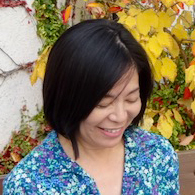
Culinary expert and dietitian
Culinary expert and dietitian
Kuriyama Mayumi has run the cooking school Amigos Deliciosos, which focuses on Portuguese food, since 2008. She is the author of Massa: The Delicious Seasoning Made from Bell Peppers (published by Ikeda Publishing) and Magical Meals: The Amazing Portuguese Art of Combining Ingredients (published by EI Publishing). She has lived in Antwerp, Belgium, since 2019.
instagram